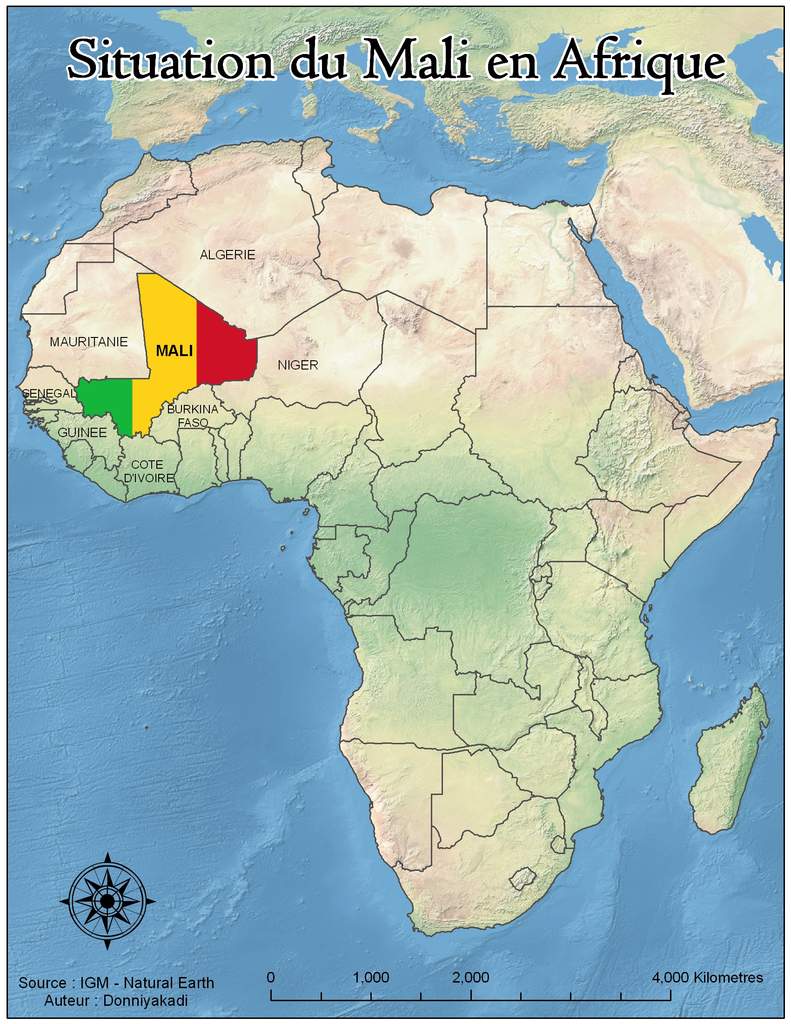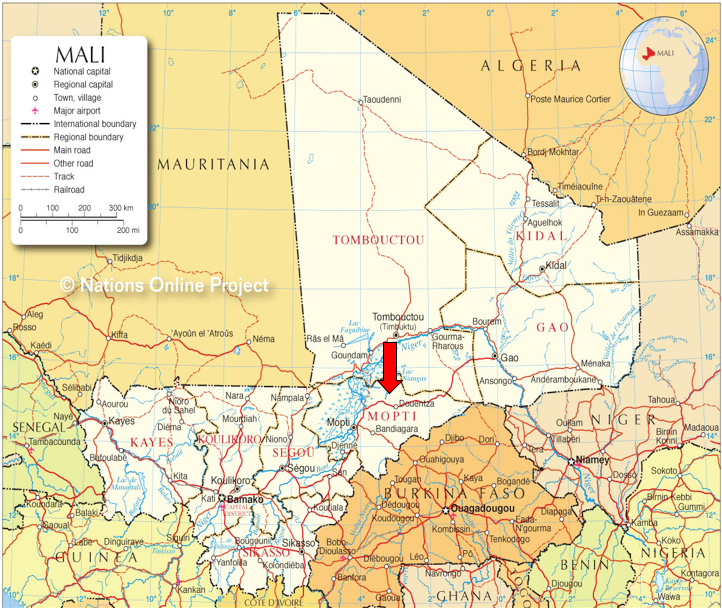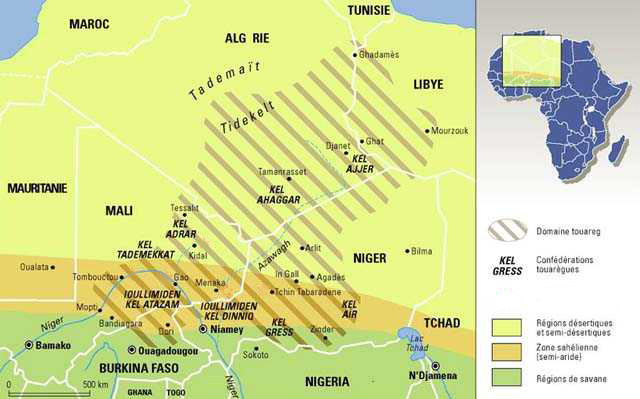Mali
The Republic of Mali, with 19,553,397 inhabitants in 2020, is the 8th
largest country in Africa. Its population is made up of various ethnic
groups, the main ones being the Bambara, Bobo, Bozo, Dogon, Khassonké,
Malinké, Minianké, Fulani, Sénoufos, Soninké (or Sarakolé), Sonrhaïs,
Toucouleur and Touareg.
French is the official language of the country and Bambara is the
language most commonly used by the population.

In
March 2012 the country is hit by a
military putsch that overthrows the head of state and his
government. In the north, the rebellion grew in size and rapidly
spread over a large half of Mali.
At the end of May 2012 the situation worsens with the arrival of
jihadists who occupy the large cities in the north, including
Douentza.
In the night of Tuesday 18 to
Wednesday 19 August 2020
after months of demonstrations by the population, a
military
coup d'état brought down the Malian President
Ibrahim Boubacar Keïta (IBK). He and his prime minister, were arrested
by the military in revolt. It seems that an agreement has recently
been reached: the National Council and the Transitional Government
will focus on strengthening security throughout the country, promoting
good governance, adopting a social stability pact, launching political
and institutional reforms and organising general elections for a
period of 18 months. Its tasks will be coached by a President - chosen
by a nomination college set up by the National Committee for the
Salvation of the People.
To be continued...
Douentza

800 km north-east of Bamako, the Malian capital, Douentza is a city of
28. 005 inhabitants (2009), capital of the
Douentza Circle
in the
Mopti region.
It is located in the plain bordering the Dogon country to the
northwest of Bandiagara. It is mainly populated by Fulani, Dogon and
Sonrhaïs.
The region is since 2012 directly concerned by the war in Mali.
Douentza was occupied and school groups were requisitioned by the
jihadists to make it their headquarters.
In
mid-July 2012, Douentza is liberated by the
Malian army without violence after negotiations.
Tangou
The village of Tangou is located 7 kilometers northwest of
Douentza. Its population is of about 600inhabitants.
The villagers are Tuareg Tamacheq nomads who
settled down to become blacksmiths and herders, for the most part.

Opened in 2011, and despite the unstable political situation,
our
bush school has remained since its creation free and operational.
Families with no means to expatriate themselves take refuge in the
bush and particularly in Tangou where a large number of children flock
to our school. When it opened in 2011, the school in Tangou welcomed
35 pupils.
Today it welcomes more than 700 children every day.




